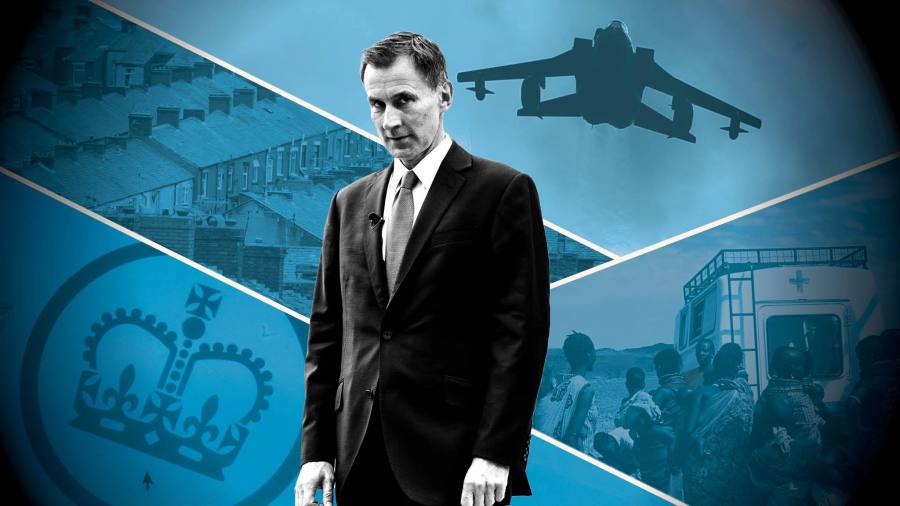[the_ad id="21475"]
[ad_1]
Jeremy Hunt, the new chancellor, warned this week he had to take “eye-wateringly difficult” decisions to balance the government’s books.
Hunt is seeking to fill a fiscal hole of about £40bn in his Budget on October 31 through tax rises and spending cuts, allowing him to meet new fiscal rules with room to spare by an expected deadline of 2027-28.
He said on Monday he wanted public debt to be falling as a share of gross domestic product and that tax receipts should exceed day-to-day spending, and will probably give himself five years to meet those targets. Below are some of his options for tax rises and spending cuts.
Higher taxes on people and businesses
When then-chancellor George Osborne launched the “age of austerity” after the financial crisis, his fiscal consolidation was based on an 80:20 ratio of spending cuts and tax rises.
People close to Hunt said the chancellor believes higher taxes will have to do far more of the work this time round, perhaps accounting for up to half of the £40bn fiscal retrenchment.
A big “stealth” tax rise could be achieved by extending a four-year freeze on personal tax allowances and thresholds announced by Rishi Sunak, chancellor, in 2021.
With high inflation, the “fiscal drag” effect means millions of people are dragged into the tax system for the first time or into higher tax bands each year. Extending the freeze would raise about £5bn a year by 2027-28.
Hunt is also expected by allies to ask banks and energy companies to pay more tax on their profits, after declaring that “nothing is off the table” and saying he was not opposed to windfall taxes “in principle”.
Cutting pensions and welfare benefits
Ministers will on Wednesday wake up to awkward news: at 7am the inflation rate for September is announced — the value that normally determines the annual uprating of pensions and welfare benefits the following April. It is expected to be 10 per cent.
That alone will raise public spending next year by £5bn over the March Budget plans, leaving Hunt with the dilemma of whether to save money by scaling back both pensioner and non-pensioner benefits.
Hunt declined on Monday to guarantee benefits would rise in line with inflation next April or thereafter, and refused to say he would honour the government’s “triple lock” on the state pension — which raises it annually in line with inflation, earnings growth or 2.5 per cent, whichever is highest.
Each percentage point by which benefits are cut…
Click Here to Read the Full Original Article at UK homepage…
[ad_2]
[the_ad id="21476"]
